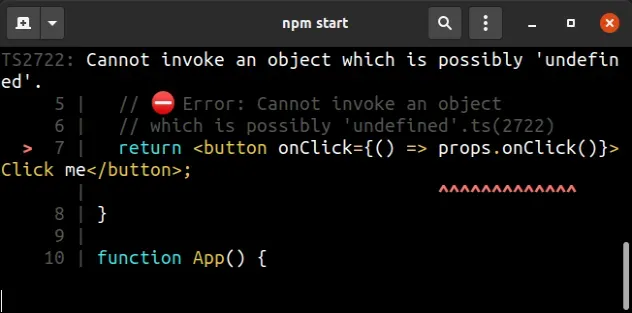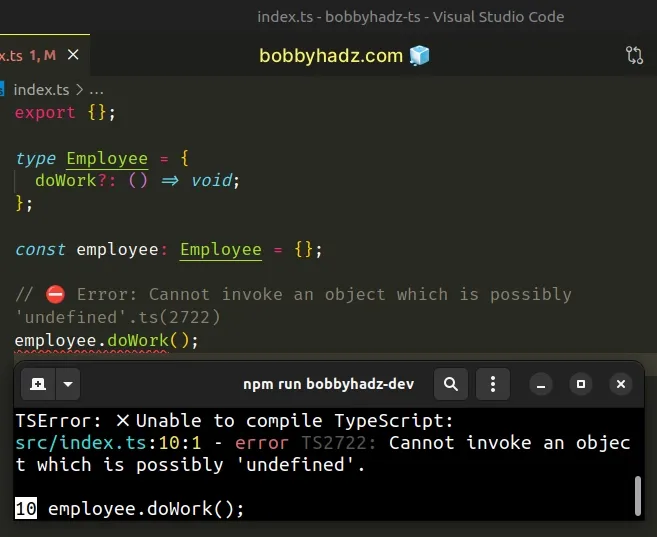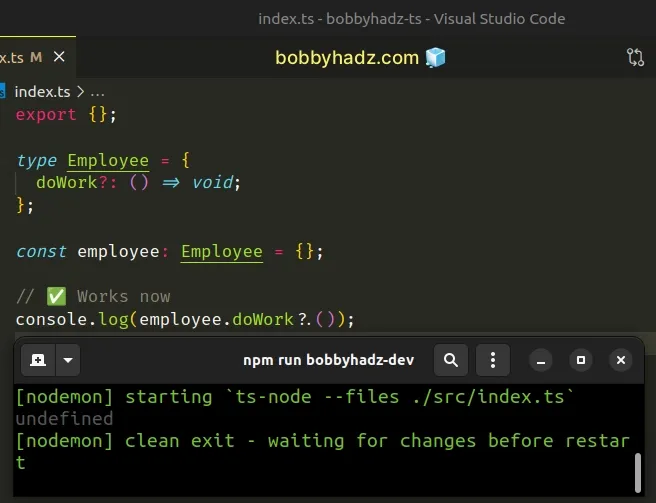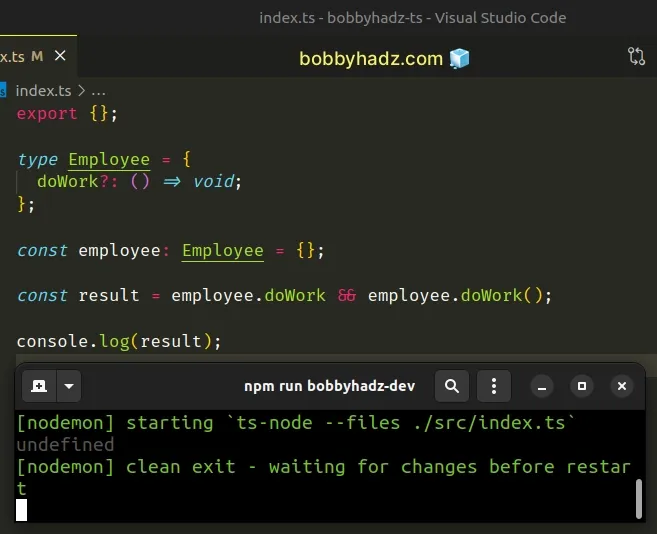Cannot invoke an object which is possibly 'undefined' in TS
Last updated: Feb 28, 2024
Reading time·3 min

# Table of Contents
# Cannot invoke an object which is possibly 'undefined' in TS
The error "Cannot invoke an object which is possibly 'undefined'" occurs when
we try to invoke a function property that could be undefined, e.g. is marked
as optional.
To solve the error, use the optional chaining operator (?.), e.g.
employee.doWork?.().

Here is an example of how the error occurs.
type Employee = { doWork?: () => void; }; const employee: Employee = {}; // ⛔️ Error: Cannot invoke an object which is possibly 'undefined'.ts(2722) employee.doWork();

Notice that the doWork function is marked as an
optional property
by using a question mark.
undefined.# Use the optional chaining (?.) operator to solve the error
To solve the error, use the optional chaining (?.) operator when invoking the function.
type Employee = { doWork?: () => void; }; const employee: Employee = {}; // ✅ Works now employee.doWork?.();

The optional chaining (?.) operator
short-circuits instead of throwing an error if the reference is undefined or
null.
undefined.If the error persists, check out my Object is possibly 'undefined' error in TypeScript article.
# Solve the error in a React.js project
The error often occurs in React.js projects when passing props with functions that are marked as optional.
Here is an example.
type ButtonProps = { onClick?: () => void; }; function Button(props: ButtonProps) { // ⛔️ Error: Cannot invoke an object which is possibly 'undefined'.ts(2722) return <button onClick={() => props.onClick()}>Click me</button>; } function App() { return ( <div className="App"> <Button /> </div> ); } export default App;
The onClick property in the props object is marked as optional by using a
question mark, so we can't directly invoke the function.
# Use the optional chaining (?.) operator to solve the error
To solve the error, use the optional chaining (?.) operator when calling the function.
type ButtonProps = { onClick?: () => void; }; function Button(props: ButtonProps) { // ✅ works now return <button onClick={() => props.onClick?.()}>Click me</button>; } function App() { return ( <div className="App"> <Button /> </div> ); } export default App;
We used the ?. syntax when calling the onClick function, so if the reference
is equal to undefined or null, we will just short-circuit returning
undefined without causing any errors.
On the other hand, if the function is defined, it will be invoked.
undefined value because trying to invoke undefined would cause a runtime error.# Using a type guard to solve the error
Therefore you could use any of the other approaches that serve as a
type guard to ensure the property is
not undefined before calling the function.
type Employee = { doWork?: () => void; }; const employee: Employee = {}; const result = employee.doWork && employee.doWork();

The logical AND (&&) operator returns the value to the right if the value to the left is truthy.
Since undefined is a falsy value, we wouldn't reach the code to the right of
the logical AND (&&) operator if employee.doWork is undefined.
If the error persists, check out my Object is possibly 'undefined' error in TypeScript article.

